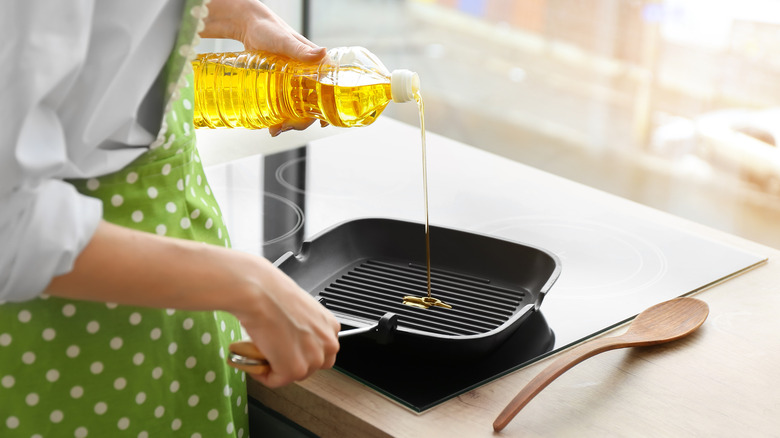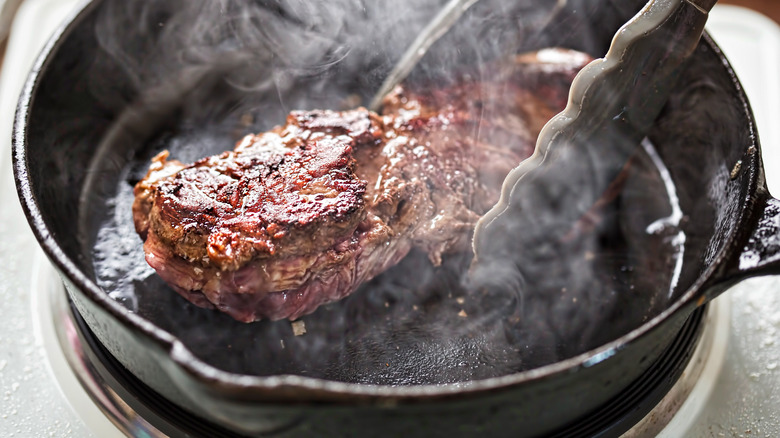The Real Reason Recipes Tell You To Preheat Your Cooking Oil
It's the end of the day, you're tired, and you just need to get dinner on the table. The recipe calls for preheating the pan, oven, or other appliance, and you feel tempted to skip this step. Just how important can it be to preheat your cooking surface? It depends on the scenario, but preheating can often save you time in the long run.
For example, throwing your food into the oven before it preheats when you're in a hurry can actually cost you more time. Because your food is heating slowly along with the oven, it cooks unevenly. This means it might actually take longer than the prescribed cooking time to bring the food to a safe temperature.
Even meals cooked in an air fryer will often benefit from a quick preheating. Thinner foods especially will crisp up and cook quickly once they're submerged in the pre-heated chamber. Just watch out for denser foods that might burn on the outside before cooking the rest of the way through. It's also important to go a step beyond preheating surfaces, and make sure that your cooking fats are properly preheated as well.
Preheating oil saves you from a sticky mess
It's important to preheat oil when cooking meats in a pan because it prevents them from sticking, according to Serious Eats. What makes meat stick to pans and surfaces is a chemical process where the proteins on the surface of the raw meat bind to the pan. When proteins are exposed to high heat they fold or break down, quickly. Heating the oil in the pan first, allows the oil to essentially flash fry the surface of the meat before it sticks to the metal. This saves you time in the long run because you won't need to tear your entree off of the pan and clean off the burnt residue afterward.
Another reason for this is that when food is added to a hot pan it creates a "steam effect." The high heat of the oil immediately evaporates water in the food. The steam lifts the food above the cooking surface and cooks the food fast before it settles in the pan, according to Science of Cooking. At this point, it's already cooked and won't stick to the pan's surface.
Keep in mind that a hot pan doesn't mean that it's sitting over a high flame. Nonstick pans can be damaged on high heats, and cast iron pans will develop hot spots. It's best to put either of these over a medium flame instead, add the oil, and let them come to temperature together, according to Food & Wine.

